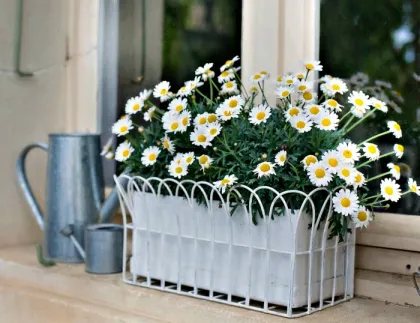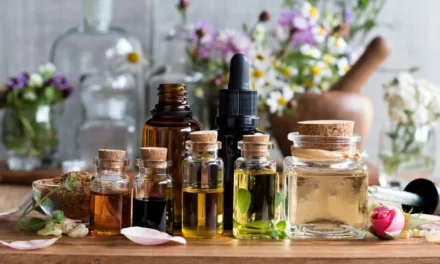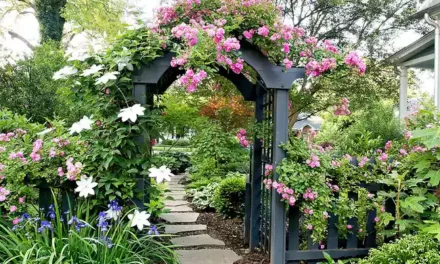Constantly seeing and being around plants help us feel calmer and more relaxed, thus decreasing levels of anxiety. In this article, we look at some of our favorite plants which can help to improve our mental health.
- Lavender
- Jasmine
- Lemon balm
- Rosemary
- chamomile
- Peppermint
- Aloe vera
- Gerbera daisy
- Chrysanthemum
- Snake plant
- Red-edged dracaena

Studies show that all plants provide mental health benefits. Constantly seeing and being around plants help us feel calmer and more relaxed, thus decreasing levels of anxiety. Nurturing and caring for our plants can also reduce stress levels and boost our mood.
Plants have been known for increasing air quality and boosting our moods, but they can also help to reduce stress.
From chrysanthemums to lavender and aloe vera, some specific types are well-known for their calm-inducing qualities and are perfect for having around the home.
‘Spending time caring for plants is a great way to help look after your mental health. Nurturing the buds and seeing the plants grow can be very rewarding and helps boost self-esteem, ‘To properly look after plants, time needs to be spent away from electronic devices, allowing gardeners to “zone out”.’
Below are some of the best plants to help relieve the symptoms of stress. The plants on this list can be put in offices and gardens, but you can also use some of them to make oils and teas.
Discuss with Pritish, Which Plants help to ease & calm the mind and relieve stress.
Take a look at the 10 plants which can help to reduce stress…
Lavender
Lavender is renowned for its richly fragrant flowers and aromatic foliage. This easy-to-grow shrub is best planted in spring, thrives in a sunny spot, and flowers in late spring and summer.

Always at the top of the list for natural anxiety busters, lavender is the source of one of the most popular essential oils and boasts many benefits when inhaled, such as improvement in short-term memory, stress relief, and relaxation. Its floral smell is effective at decreasing anxiety and providing a calm atmosphere.
As your lavender grows, you can clip the flowers and use them in tea or hang them upside-down for about a week to dry before using them as a fragrant décor indoors.
Jasmine
Jasmines are evergreen or deciduous climbers and can be summer or winter flowering. Summer-flowering jasmines are climbers with clusters of small, fragrant flowers, usually white or pale pink. Winter jasmine is a popular reliable shrub whose bright yellow flowers help to bring cheery color throughout the colder months.
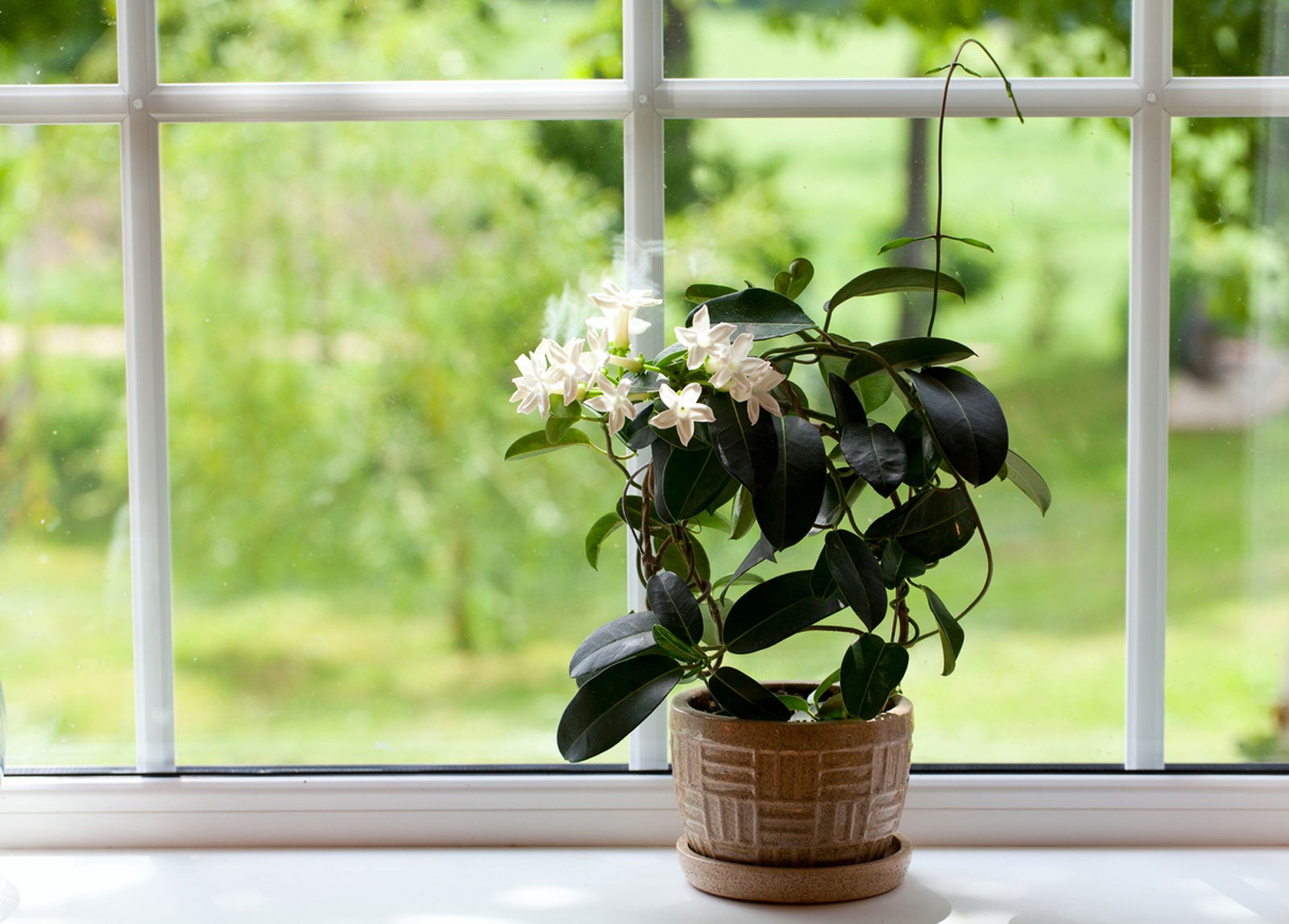
All jasmines have small star-shaped flowers with a sweet and distinctive fragrance. This delicious fragrance is known for helping to ease the body from anxiety. When surrounded by jasmine, we’ll likely feel less anxious and more at peace.
Jasmine is best planted somewhere sunny, warm, and sheltered, preferably near a seated area to enjoy the scent of the flowers.
Lemon balm
Lemon balm comes from the mint family and is a bushy perennial herb with oval, lemon-scented leaves with scalloped edges, and leafy spikes of creamy-white or pale purple flowers in summer. Also known as “Melisa,” the plant is rich in pollen and attracts bees, hence the name, Melisa: the Greek word for “bee”.
:max_bytes(150000):strip_icc()/beginners-guide-to-growing-lemon-balm-5191186-11-d7c1304d3a0e4bc2afb76c8ffe3b4aa9.jpg)
The leaves are used as a herb, in teas, and also as a flavoring. They have strong relaxing properties and are used to combat stress, anxiety, and insomnia.
Rosemary
Popularly known for being a culinary herb, rosemary is a perennial herb from the mint family and has been used in traditional medicine for centuries. A sun-loving shrub whose scent evokes the Mediterranean, rosemary has needle-like leaves that can be picked all year round. It is so easy to grow outside that some people plant rosemary in place of more traditional shrubbery outdoors.
/grow-rosemary-indoors-1902488-01-d35231bd388b4391842b156a12692dd5.jpg)
Rosemary essential oil has a woodsy fragrance and is considered a mainstay in aromatherapy, not just for its pleasant smell but also because it calms the body while energizing the mind. Rosemary oil also has a wide range of other uses, from improving memory function to relieving stress and anxiety.
Research shows that simply inhaling the aroma of rosemary essential oil can lower levels of the stress hormone cortisol in your blood.
Gerbera daisy
The Gerbera daisy is very colorful and adds a dynamic element to any garden, regardless of its size. Gerberas bear huge daisy-like blooms on long stems, from clumps of lobed leaves and are attractive to bees and other pollinating insects. Long-flowering, they’re perfect for pots, adding color to borders and even indoor conservatory displays. Gerbera daisies come in many colors from bright shades of hot pink, red, and yellow to cooler pastel yellows, pale pink, and white.

People often associate gerbera daisies with beauty and cheerfulness and that’s why gerberas are a great flower for offering anti-anxiety and relaxation benefits. Not only are they a great stress reliever, but there is also something inherently charming about these flowers.
Chrysanthemum
Chrysanthemums offer valuable, late flowers in September and October. These perennial plants are either hardy or half-hardy and can be grown in containers, as house plants, or on a border.
Chrysanthemums flower in an incredible range of different colors. Early-flowering chrysanthemums can be planted in ornamental borders and will flower from late summer to autumn. Late-flowering chrysanthemums flower in winter and are grown as house plants. For a reliable perennial chrysanthemum, choose hardy garden varieties that can be left in the ground all year round.

Chrysanthemums naturally brighten any space they’re in, bringing a sense of joy and calm to our gardens and homes and helping to lessen symptoms of worry and stress. These flowers have also been proven to purify the air and by removing toxins in the air, this helps our bodies relax a bit more too.
For anyone who doesn’t have a garden, a cost-effective way of bringing the benefits of the outdoors inside is by investing in some houseplants. Here are a couple of suggestions that have been proven to help with our mental health needs.
Snake plant
The snake plant is a popular house plant with sword-like leaves. Its pointed leaves have given it the nickname ‘mother-in-law’s tongue’. There are several different varieties, all with slightly different shapes and leaf colors.
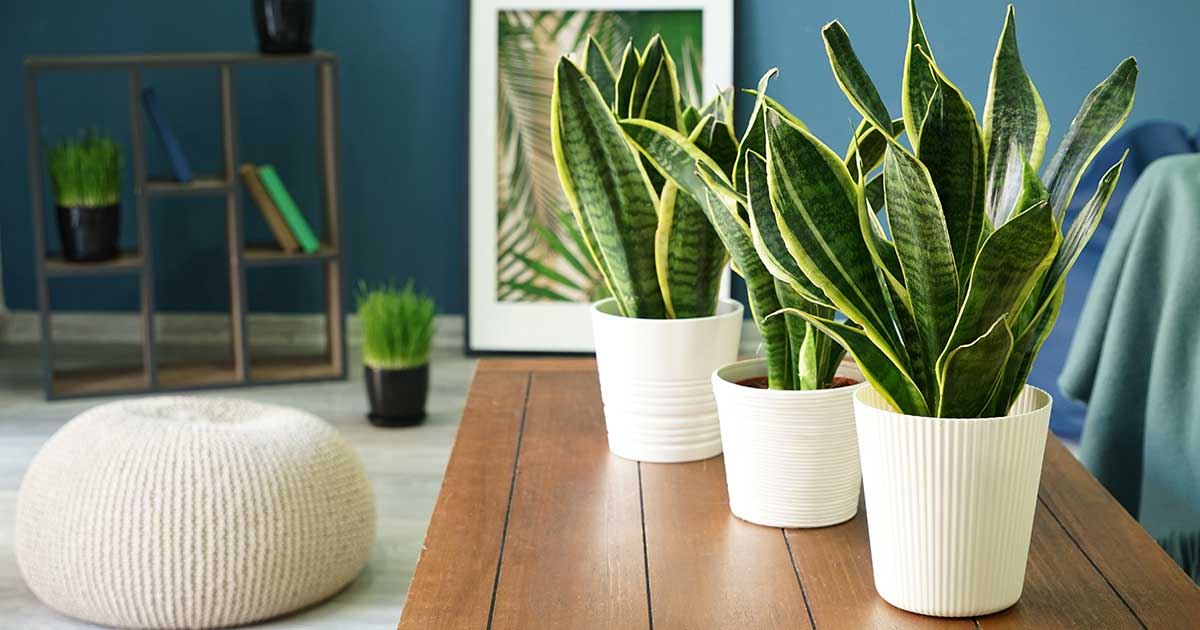
The snake plant could be described as the perfect house plant – it always looks fresh but is extremely durable and requires very little attention to growing. It isn’t fussy about its location and needs little watering.
Known to provide strong protective energy, the snake plant can effectively reduce anxiety, respiratory problems, and headache symptoms. It is also a good air purifier – NASA research has shown that it can remove toxins, such as formaldehyde and benzene, from the air inside our homes.
Red-edged dracaena
The red-edged dracaena (Dracaena marginata) is a striking houseplant that has elegant long, thin leaves with characteristic crimson edges and can grow quite tall (up to the ceiling).

It is a low-maintenance plant that doesn’t require much watering and can last for years. Whilst it prefers a bright or lightly shaded spot, it will also tolerate low-light conditions.
The red-edged dracaena is known to promote relaxation and reduce stress. Its air-purifying qualities eliminate toxins in the air, helping to create a relaxing, clean ambiance in your home while also eliminating toxins in the air.
Peppermint
Peppermint has been found to lower frustration and also boost alertness. Menthol, found in the plant, is commonly included in many bath products as it helps to relax the muscles. Had a stressful day? Why not chop some fresh peppermint into warm running water for a long soak? Don’t forget your book.
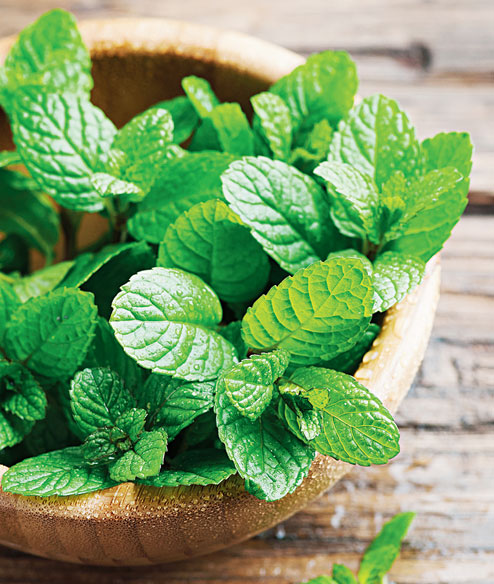
Chamomile
Often used before bed, Chamomile has long been known for its anti-anxiety effects and sleep aid. Commonly taken as a tea, it can also help reduce inflammation. Brilliantly, too, you can also grow it in your garden.

Aloe Vera
Celebrated for its anti-inflammatory properties, Aloe Vera is a much-loved powerful plant that is also able to heal. Plus, it helps remove harmful chemicals from the air and can help reduce anxiety. Time to head to your local garden center.

Reference
https://www.thrive.org.uk/get-gardening/plants-to-help-ease-the-mind
https://www.housebeautiful.com/uk/garden/plants/a28435128/plants-reduce-stress/

